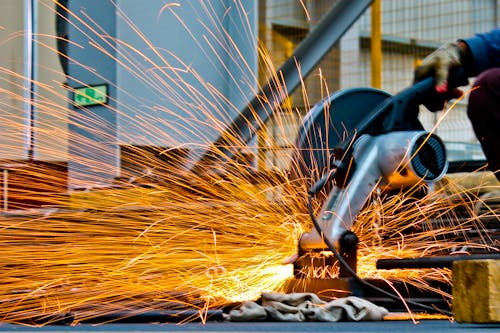Whether it’s a mining project or even a manufacturing device, no company really wants to feel downtime. Unplanned downtime comes with overwhelming monetary costs and might cause the business to lose its competitive advantage.
In most manufacturing devices, heavy machinery is the backbone of the company. The proactive maintenance of heavy machinery is maybe the easiest way to stay away from unplanned downtime. Preventive maintenance also guarantees better performance, saves energy and fuel consumption, as well as fosters a safe work atmosphere. Here is how you are able to take care of your heavy devices and expand the longevity theirs.
Industrial Machine Repairs Tips
Ensure Regular Lubricant Replacements
All kinds of heavy equipment depend on lubricants for better operation. These liquids lessen friction around moving parts, which, decreases tear and wear. The lubricants also help maintain the inside of heavy machines completely clean by stopping soot buildup.
Keep the following in mind:
Check the lubricant levels frequently. Also, look for too much grease build-up and oil seal leaks frequently.
Always wear a lubricant recommended in the operator’s hand or even suggested by the producer.
Choose the correct amount of lubricant. With too little usage of lubricant, the risk of increased friction is run by you and even wear and tear. Abnormal lubrication, on the other hand, is going to build up grease and cause general performance issues.
Wash the Machine Thoroughly
Thorough cleaning is as important as keeping the lubricant levels. Unfortunately, most organizations are likely to spend very little attention to this phase. Dust, dirt, and soot are able to block filters, seals, cooling fans, and vents lessening the entire performance over time. Be sure to check each component of the machinery very carefully.
Check for Any Wear and Tear
A number of elements are able to result in input on as well as tear over time, which includes poor working habits, environmental factors, accidents, and aging. Even though all the precautions are taken by you, aging will ultimately impact many critical ingredients of the devices. For instance, belts will warp over time, seals might dry out or crack, and bolts might fold or even stretch out of the original shape of theirs. That is exactly why you’ve to examine all components of the machinery for damage.
Stay away from Exceeding Performance Specifications
As part of all industrial machine repairs, all heavy equipment includes a set of certain performance limits including optimum load capability, a predefined assortment of operating temperature, and pressure, along with other limits. Be sure to check out the operator’s handbook to learn the performance limits of your gear thoroughly.
Train the Employees
The absence of operator training is able to lead to putting on as well as tear, gear failure, and injuries. Teaching your personnel is additionally the easiest way to make sure your equipment operates within the preset operating limits as they find out about the gear in detail. Additionally, state, local, and federal laws might also need you to employ trained and certified personnel to deal with a certain kind of heavy equipment.

